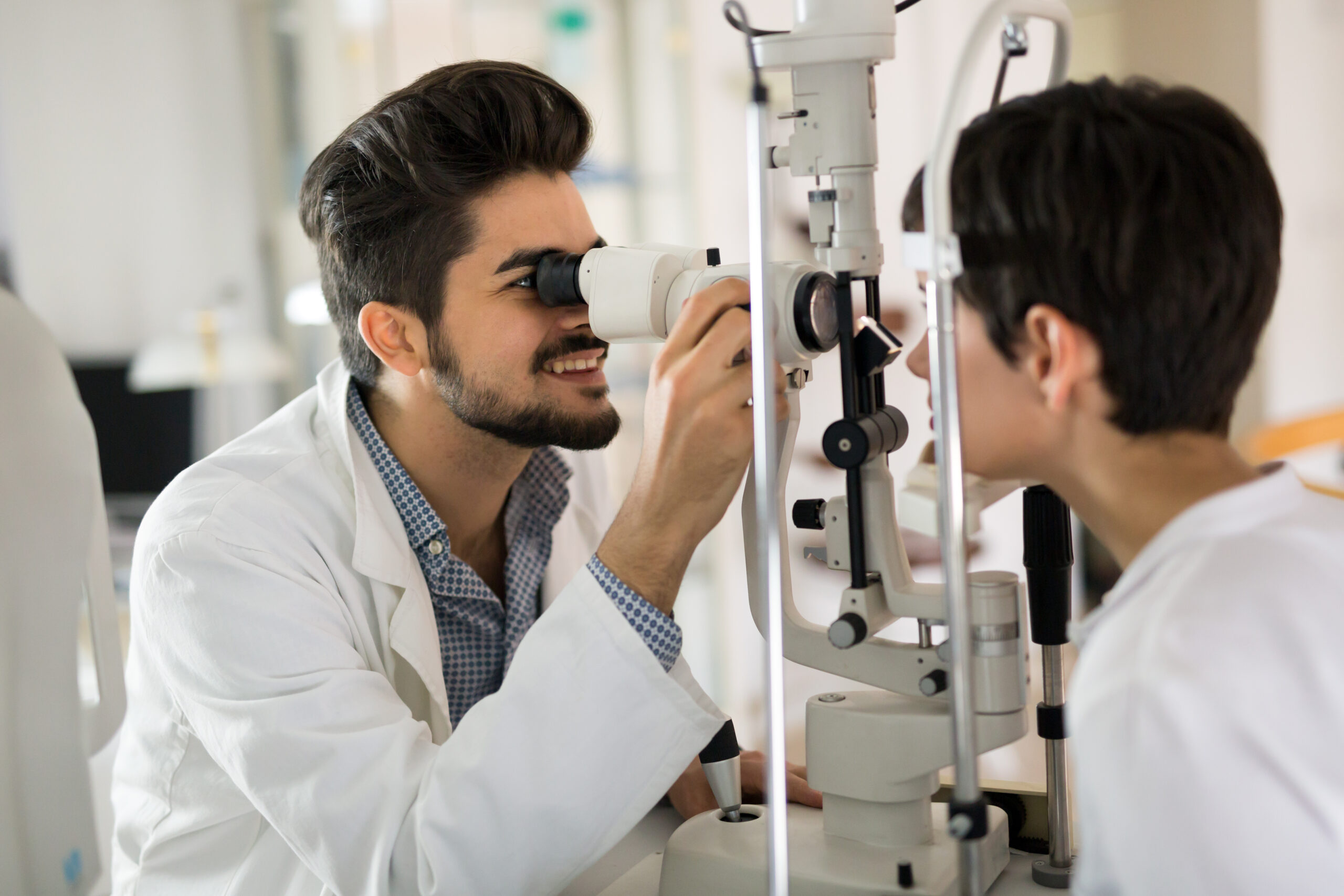Each year, around 4.5 million eye surgeries are performed in the United States, primarily for cataracts, which cloud the natural lens of the eye. Refractive Lens Exchange (RLE) offers a similar procedure as an elective option for individuals aged 45 and older, aiming to significantly reduce or eliminate the need for prescription eyeglasses, contact lenses, and reading glasses.
What Is Refractive Lens Exchange (RLE)?
Benefits of Refractive Lens Exchange Surgery

Benefits of Refractive Lens Exchange Surgery
Corneal refractive surgeries like LASIK and SMILE have benefited millions, but they aren’t suitable for everyone—especially those with higher levels of myopia, hyperopia, or presbyopia, where treatment options may be more limited. Refractive Lens Exchange (RLE), also known as clear lens exchange or refractive lensectomy, offers an excellent alternative, effectively addressing almost any refractive vision condition.

Benefits of RLE surgery includes:
- Lower risk of dry eye compared to corneal refractive surgeries.
- No future risk of cataracts since the natural lens is removed, allowing you to enjoy long-term vision correction benefits.
- The Light Adjustable Lens implant provides extended depth of focus, supporting both near and distance vision with a smaller difference between eyes than contact lenses or laser vision correction.
Everything you always wanted to know about RLE surgery
Who is Refractive Lensectomy Ideal For?
Refractive lens exchange (RLE) is a versatile vision correction option.
For those aged 20 to 40, laser vision procedures like LASIK and SMILE, which reshape the cornea, are usually ideal, allowing for clear vision at both near and far distances. This age group is typically pre-presbyopic, meaning their natural lens still provides effective close-up focus.
For individuals over 40 or those who aren’t candidates for laser vision correction, RLE can be an excellent solution. As part of aging, the lens loses flexibility—a condition called presbyopia—leading many to rely on reading glasses or bifocals. RLE offers a long-lasting, surgical solution that reduces or eliminates the need for these aids.
For those over 40 who previously had LASIK, RLE may also be beneficial. While LASIK is effective for people aged 20-40, it doesn’t prevent presbyopia. By mid-to-late 40s, near vision may begin to decline, even for those who enjoyed glasses-free vision after LASIK. RLE can help restore that clarity and eliminate the need for reading glasses, maintaining the freedom from eyewear that many desire.
The RLE Procedure

Understanding the RLE Procedure
Refractive Lens Exchange (RLE) is a highly effective procedure designed to enhance vision by replacing the eye’s natural lens with an artificial intraocular lens (IOL). This outpatient procedure is similar to cataract surgery but is elective and aimed at correcting vision issues like nearsightedness, farsightedness, and presbyopia.
During the procedure, the natural lens is gently removed and replaced with a specially selected IOL that best suits the patient’s vision needs. This new lens provides clearer, more stable vision and can often reduce or eliminate the need for glasses or contact lenses. RLE is a quick, virtually painless procedure with lasting benefits, offering a valuable alternative for those seeking reliable vision correction without the limitations of corneal refractive surgery.

Recovery after RLE

Recovery after RLE
RLE Results
The vast majority of patients who undergo refractive lensectomy with the Light Adjustable Lens experience high satisfaction after a single procedure. While uncommon, approximately 1% of patients may require a follow-up surgery to fine-tune results.
How Much Does Refractive Lens Exchange Cost?
RLE costs more than other laser vision correction procedures, such as LASIK. It is more expensive due to the advanced technology used in the lens implantation procedure. However, we offer 0% interest for 24 months or extended payment plans with interest for up to 60 months (subject to credit approval through CareCredit). We also have other options that could help you pay for eye surgery.
Schedule your free consultation at any
one of our three Bay Area offices.
To schedule your free consultation with Dr. Hyver, or if you have any questions, please complete the following:

